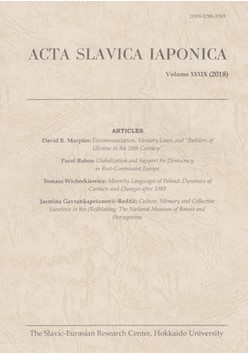Russian Policy toward Islamic “Sacred Lineages” of Samarkand Province of the Turkestan Governor-Generalship in 1868–1917
Russian Policy toward Islamic “Sacred Lineages” of Samarkand Province of the Turkestan Governor-Generalship in 1868–1917
Author(s): Azim MalikovSubject(s): Political history, Social history, Islam studies, Government/Political systems, Politics and religion, Politics and society, 19th Century, Pre-WW I & WW I (1900 -1919), Inter-Ethnic Relations, Ethnic Minorities Studies, Sociology of Religion, Politics and Identity
Published by: Slavic Research Center
Keywords: Russian policy towards Islam; Turkestan Governor-Generalship; 1868–1917; Sacred Lineages; waqfs; Sufi brotherhoods and Ishans; Islamic reformism;
Summary/Abstract: Historians have pondered the methods and means for the inclusion of a territory with various systems of social organization into the structure of the Russian Empire. In this regard, a special interest is represented by the study of the Russian Empire’s policy in relation to the Muslim religious elites of Central Asia. In the past, Muslim religious elites played a significant role in the public life of the people of Central Asia. The leading role in economic and religious life of the region was played by the ulama, whose highest layer was represented by “holy groups” or sacred lineages as descendants of the Prophet Muhammad or the first four Caliphs. Some “sacred lineages” fulfilled important religious and social duties in pre-Soviet Central Asian society (before 1917) and were held in very high esteem by everyone. Members of these lineages performed religious services at ritual celebrations, acted as healers, and helped settle disputes. Some were also the caretakers of Sufi shrines. The sacred lineages formed part of the Central Asian aristocracy called oq suyak (white bone) in contrast to the qoracha (black, common people). To understand the place of the religious elite, it is necessary to take into account that the ulama, most of whom were from “sacred lineages,” monopolized the possession of knowledge of Muslim laws, and of the resolution of legal and religious issues.
Journal: Acta Slavica Iaponica
- Issue Year: 2020
- Issue No: 40
- Page Range: 193-216
- Page Count: 24
- Language: English

